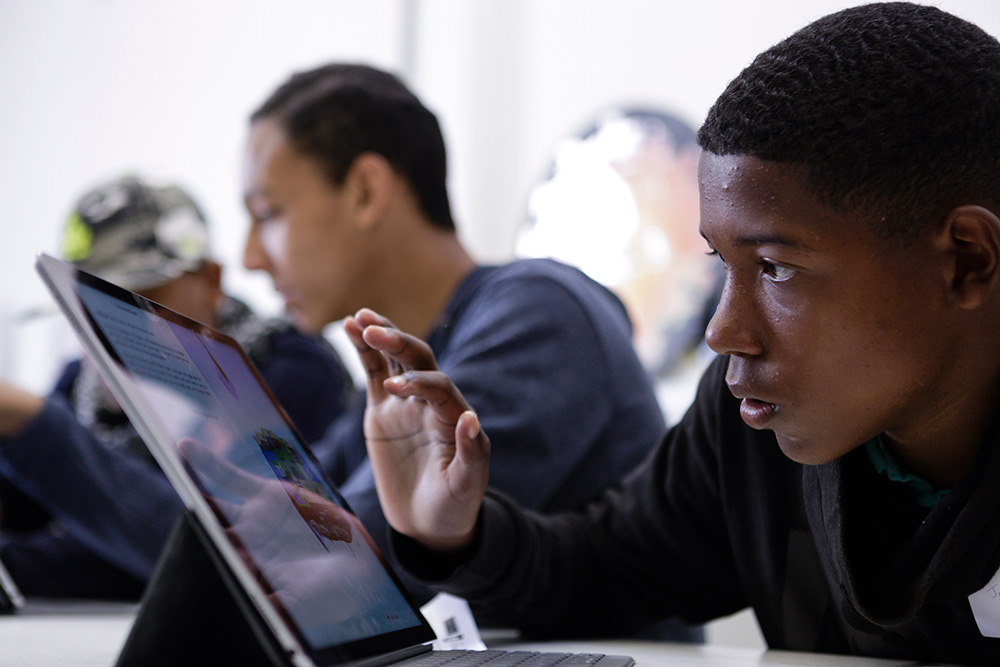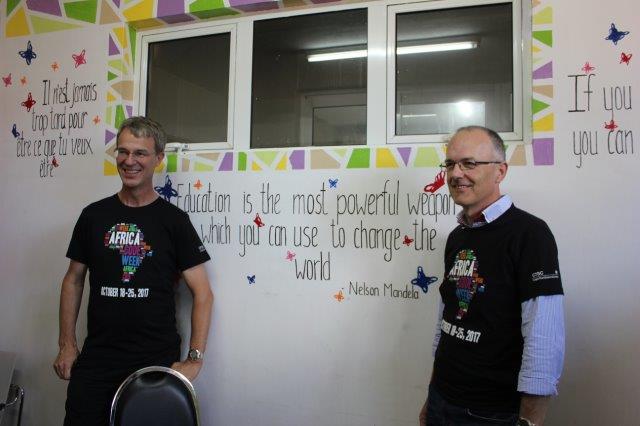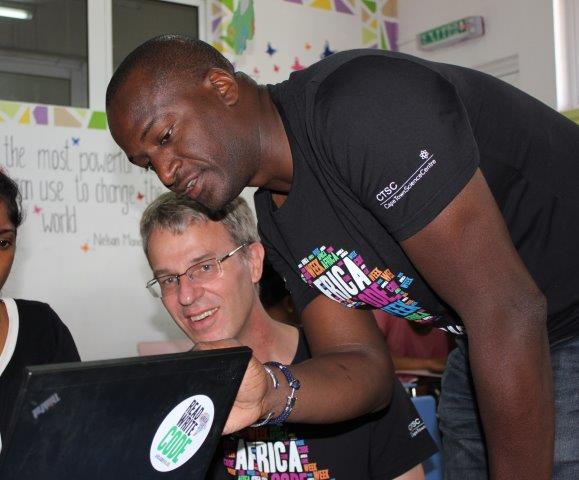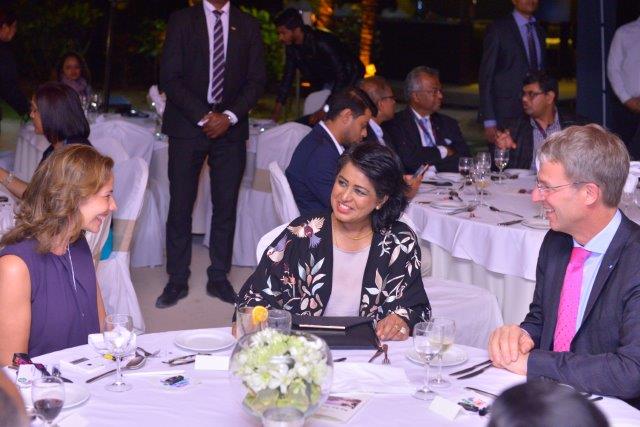The 2017 edition of Africa Code Week officially kicked off yesterday in Flic-En-Flac, Mauritius. Now in its third year, Africa Code Week aims to spread coding literacy among African youth, with a key focus on female skills development and training.
Inaugurated in 2015 by SAP Corporate Social Responsibility EMEA and several public and private sector partners, the initiative has a long-term goal of empowering more than 200,000 teachers and positively impacting the lives of 5 million children and youth within the next 10 years. In 2016, more than 426,000 young Africans across 30 countries learnt computer coding basics as part of Africa Code Week, beating initial targets of 150,000 by miles. This year, SAP set a target of impacting the lives of 500,000 youth across 35 African countries from 18-25 October.
“By learning the new language of coding in an open, supportive environment, young Africans are able to take advantage of the immense opportunities presented by the digital revolution and become active players of the global economy,” says Claire Gillissen-Duval, Director of EMEA Corporate Social Responsibility at SAP and Global Project Lead for Africa Code Week.
By 2040, Africa is projected to have a working age population of more than 1 billion. “Considering the growing global shortage in technical skills, Africa has a unique opportunity to take a lead role in powering the global economy,” says Clas Neumann, Senior VP, Lead of Fast Growth Market Strategy at SAP. “However, the lack of widely available education in science, technology, engineering, and maths (STEM) fields could undermine the continent’s ability to equip this growing workforce with the skills they need to thrive in the digital economy. Africa Code Week is one way of reaching out to even remote corners of the continent and creating interest in the opportunities only the digital world can offer. We hope that this will help inspiring young Africans to pursue careers that will drive the continent’s digital transformation.”
A platform for digital service delivery in Africa
Since gaining independence in 1968, Mauritius has undergone a remarkable economic transformation from a low-income, mostly agriculture-based economy to a diversified, upper-middle income country with vibrant sugar, tourism, ICT, hospitality and property development industries. Today, it is one of the leading African countries across a range of indexes, most notably scoring 1st place in Africa in the World Economic Forum’s Global Competitiveness Index and United Nations’ Human Development Index. With the highest ICT Development Index of all African countries, the Republic of Mauritius also continues to lead the way in the integration of ICT as a socioeconomic growth accelerator.
According to the latest government statistics, nearly a third of current Mauritian students are enrolled in a STEM-related course. However, according to Mauritian President H.e. Dr Ameenah Gurib-Fakim, the sector’s workforce impact remains low due to a lack of sufficient talent needed to take the sector to new heights. “There is only one way to transform Africa’s ‘youth bulge’ into an unprecedented opportunity for growth and social peace: Education,” says President Ameenah Gurib-Fakim. “The Republic of Mauritius is keen to support and participate in Africa Code Week this year and I look forward to working with all stakeholders from the public and private sector to drive STEM skills development nationwide and across the African continent.”
The call for diversity
Prevailing stereotypes and cultural barriers typically mean women are 1.6 more likely to report a lack of digital skills as a barrier to their participation in the digital economy. “If Africa is to realise its potential and provide the workforce that will power the global economic engine in the long run, more must be done to empower girls and women by promoting digital skills development and improve their job prospects,” said Gillissen-Duval.
The Mauritian government has taken several measures to promote gender equality, including repealing discriminatory laws and the appointment of equal opportunity officers in principal ministries to deal with women’s issues. The Ministry of Gender Equality, Child Development and Family Welfare also recently launched the second annual Model Commission on the Status of Women, a country-wide initiative encouraging youth to promote and reflect on the social, economic and political rights of women. Mauritius’s efforts towards empowering the next generation of female leaders and entrepreneurs are very much in line with the #eSkills4Girls mission: a joint initiative by the German Federal Ministry for Economic Cooperation and Development (BMZ), SAP, Africa Code Week and UNESCO to overcome the gender digital divide and improve digital skills and employment opportunities for girls and women in emerging and developing countries.
The value of partnerships
Africa Code Week is now actively supported by a fast-growing network of strategic partners – including UNESCO YouthMobile, BMZ, the Cape Town Science Centre, the Galway Education Centre, Google, ALink Telecom, Fondation Life Builders, DreamOval Foundation, Camara Education and 10 African governments. Among the latter public-sector partners, the Moroccan Ministry of Education and Vocational Training won the ACW friendly competition two years in a row with a record of 200,000 young Moroccans engaged in Africa Code Week since 2015.
Brett Parker, President of SAP Africa, said Africa Code Week is a shining example of how effective public-private partnership and open collaboration can bring transformative change to Africa’s youth. “With a wealth of youthful talent, a network of passionate teachers and the tremendous support of our key strategic partners, Africa Code Week has gone from strength to strength, making a far-reaching and positive impact on the fortunes of the continent’s youth. We are thankful to our partners for their support in our effort to address the challenge of female STEM skills development through Africa Code Week and we look forward to working with all stakeholders to empower a new generation of digital innovators across the continent.”
The 2017 Africa Code Week initiative will take place across 35 countries from 18-25 October. For more information about Africa Code Week, please visit http://africacodeweek.org/.





